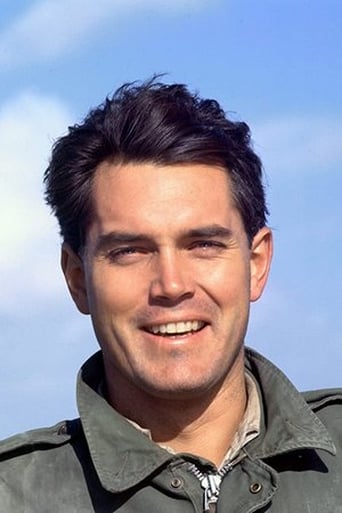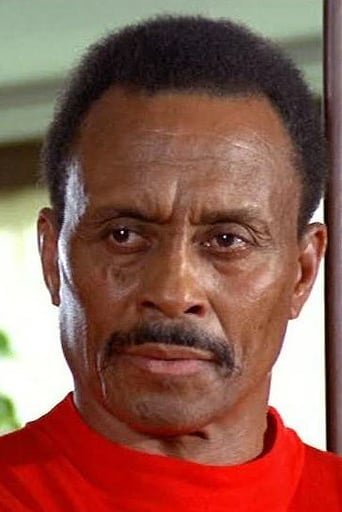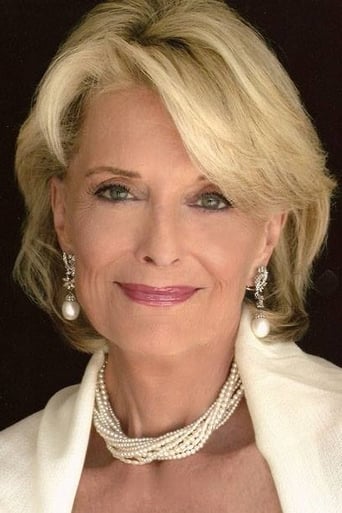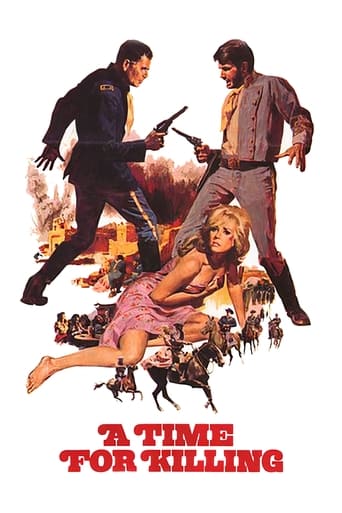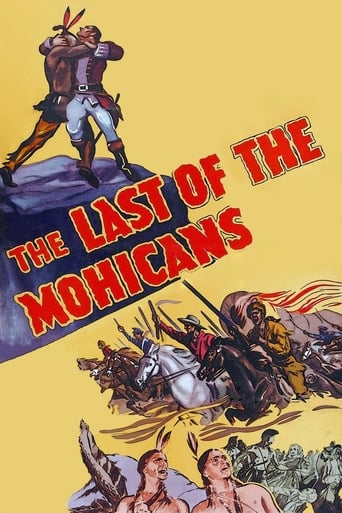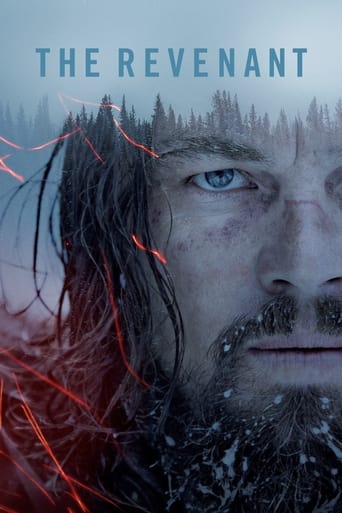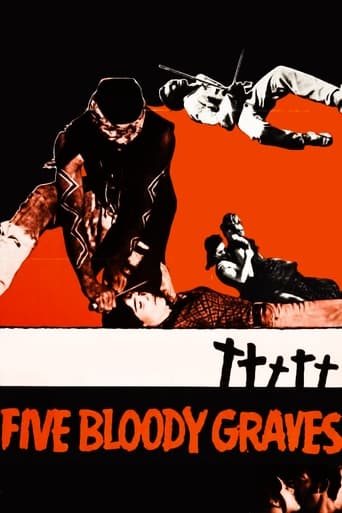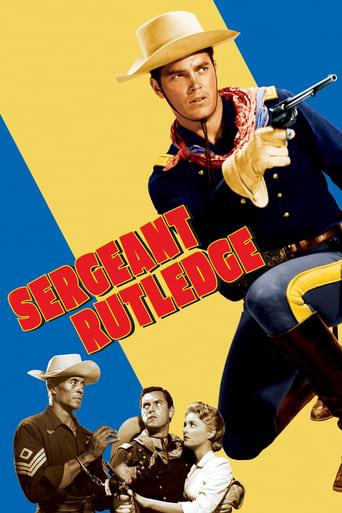
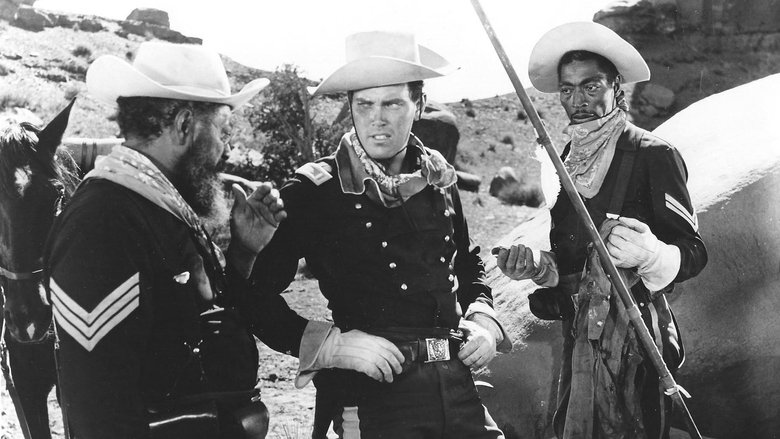
Sergeant Rutledge (1960)
Respected black cavalry Sergeant Brax Rutledge stands court-martial for raping and killing a white woman and murdering her father, his superior officer.
Watch Trailer
Cast
Similar titles
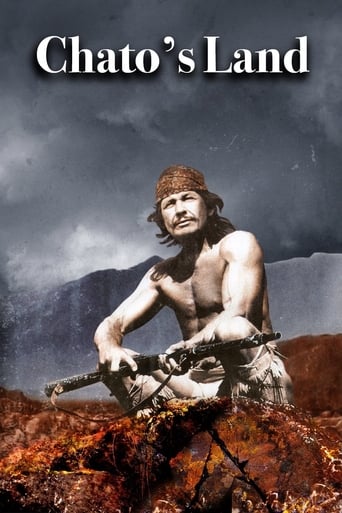
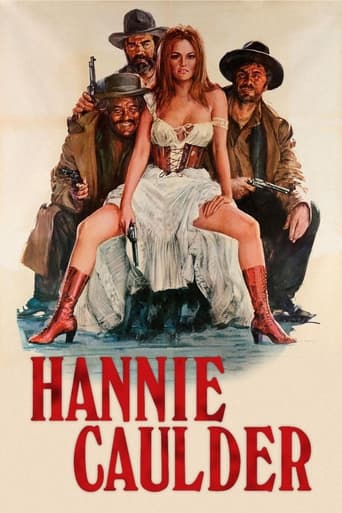
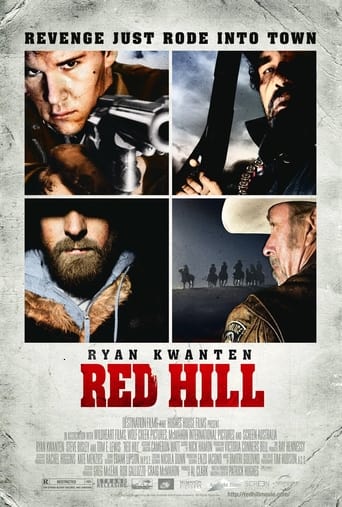
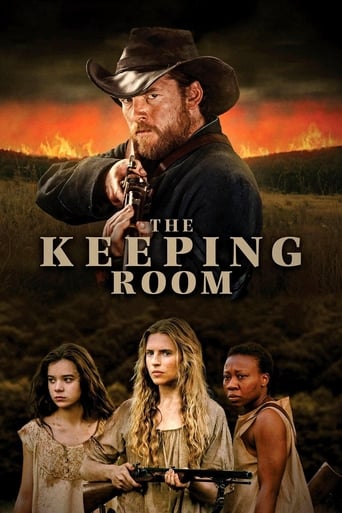
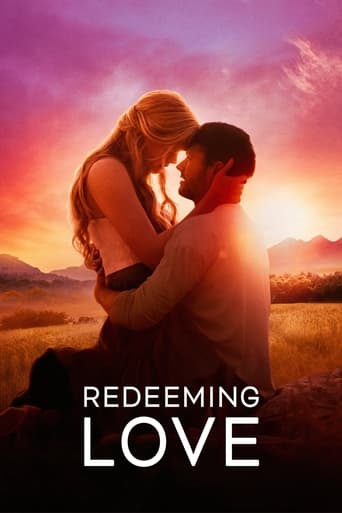
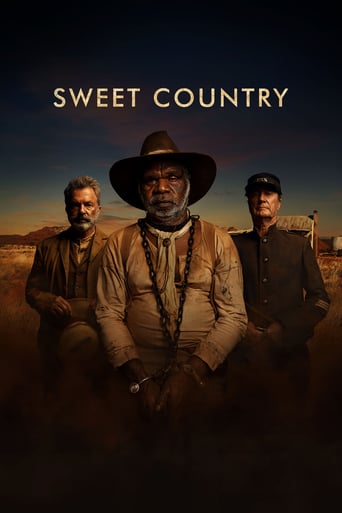
Reviews
Wow! Such a good movie.
I don't have all the words right now but this film is a work of art.
When a movie has you begging for it to end not even half way through it's pure crap. We've all seen this movie and this characters millions of times, nothing new in it. Don't waste your time.
Very good movie overall, highly recommended. Most of the negative reviews don't have any merit and are all pollitically based. Give this movie a chance at least, and it might give you a different perspective.
"Racist? Me? My best friends are black; Woody Strode and my servant who's lived with me for thirty years. I've even made a picture exalting the blacks! I'm not a racist! I consider the blacks as completely American!" - John FordSet in the late 1880s, John Ford's "Sergeant Rutledge" stars Woody Strode as a black sergeant in the United States Cavalry. Strode's character is wrongfully accused of raping and murdering a young woman, a charge which he attempts to overturn.Released in 1960, "Sergeant Rutledge" was one of several attempts by director John Ford to address a very specific accusation: that many of his previous westerns presented racist, whitewashed versions of the Old West (by 1870, approximately 290,000 African Americans lived in the sixteen territories comprising the West, approximately twelve percent of the population). In this regard, "Rutledge" finds Strode playing an archetypal "strong, righteous black man". With his chiselled body, sharp mind and proud, upright gait, Strode becomes a super-idealized incarnation of the already idealized Noble Negro. Ford then attempts to debunk the myth of the "black rapist" - a spectre which has hung over cinema since "The Birth of a Nation" - but as is often the case with Ford, such well meaning gestures are negated by the film itself; this is ultimately a picture which ignores the fact that it is about oppressed minorities (blacks) who were armed to slay oppressed minorities (Native American Indians and Mexican Revolutionaries), and one which has total faith in the dignity and morality of military service, an institution which our hero naively believes provides "freedom" and "self respect". Released during the rise of American Civil Rights movements, black audiences rightfully rejected "Rutledge"; you cannot reconcile black pride and black sexuality with the authoritarian, racist system of the white-controlled military. This situation is even more pronounced today, the US armed forces largely comprised of the poor and/or ethnic minorities. These are today's Buffalo Soldiers, shipped abroad to new frontiers to, like Rutledge, "tame savages" in Latin America, Africa and the Middle East.Within his own life, Ford embodied similar contradictions. As the child of immigrants, he was the member of a persecuted racial and religious minority, a fact which led to him identifying with anyone who faced victimization. In the early 1950s, at a time when the film industry was being mauled by the House Un-American Activities Committee (HUAC), which investigated Communist influence in the film industry, Ford would also speak out against the attempts of right-wing directors to take over the Directors Guild and enforce their own blacklisting policies. On the flip side, Ford also allied himself with the conservative Motion Picture Alliance for the Protection of American Ideals (MPAPAI), which attempted to eradicate left-wing movements within the industry. Such contradictory motions are common in Ford's later works.Ford Made several more flicks which overtly attempted to respond to accusations of racism ("Cheyenne Autumn", "Two Rode Together" etc). Ironically, these films tend to be terrible when stacked up against his racially dubious or outright racist pictures ("Drums Along the Mohawk", "The Prisoner of Shark Island", "Judge Priest", "The Sun Shines Bright", "Stagecoach", "Steamboard Round the Bend", his gun-fore-hire Colonialist adventures, his WW2 propaganda films etc). Ford also made a number of films about racial or class based persecution ("The Informer", "The Plough and the Stars", "Grapes of Wrath", "The Fugitive" etc), most of which are expressionistic and/or influenced by Murnau, a director whom Ford adored.Two films which best sum up the difficulties contemporary audiences face when reading Ford are "Wee Willie Winkie" and "Fort Apache", both starring Shirley Temple. In "Winkie", Temple plays an innocent girl who questions the roles of white adults in Colonial India. In "Apache", Temple plays a similar character, questioning the role of military officers in an American outpost which wages war on Native American Indians. At the end of both films, however, Temple's character drops her views and becomes a stoic, military-woman, adopting the classist, racist, Imperialist values of those around her. Ones ideological reading of these pictures, of course, depends on whether or not one believes Temple's changes are being posed as critique or a necessity, or whether or not Ford cares at all, one way or the other.5/10 – Many of Ford's films focused on men wrongfully accused of a crime ("Four Men and a Prayer", "The Prisoner of Shark Island", "The Hurricane", "The Sun Shines Bright", "Judge Priest" etc). Obvious and condescending, "Sergeant Rutledge" is one of his worst. Worth one viewing.
John Ford's grandson, Dan, wrote of "Sergeant Rutledge" that Pappy was really feeling his age on this one and I guess he's right. There is a scene near the beginning in which a cavalry officer, Jeffrey Hunter, meets the blond young Constance Towers. The scene takes place on a train at night. But Ford didn't bother to put the interior of the railroad car on rockers. The result is a static picture of two people talking on a stationary interior set.The same carelessness extends to the rest of the film. Many of the interiors were obviously shot in the studio with painted backdrops outside the window. The few images of Monument Valley, true Ford territory, are magnificent and stand out from the rest. The writers have given the defense counsel a big mistake in the dialog. Jeffrey Hunter argues that, so far, the evidence the court has is balanced but that "one iota of evidence can tip the scales either way." Now, even the most callow screenwriter knows that evidence does not come in "iotas." It invariably comes in "shreds."There is a problem with the casting as well. Willis Boucher is heading Woody Strode's court martial. He's always a reliable blowhard. And Jeffrey Hunter is a stalwart leading man. But it's arguable that Woody Strode himself can carry such a prominent part in a film. He's a football player, not a natural actor. He has one monumental statement and handles it well but the speech is just a bit too long, about one sentence too long. The rest of the acting is below par. Ford was at that point in his career where he was ready to pass out roles to old friends, but his old friends were disappearing. This is one instance in which more of the John Ford stock company would have been a welcome substitution for actors in important roles who just can't handle it. The suave and supercilious Judge Advocate, Carlton Young, is fine but Constance Towers isn't much of an actress. Jan Styne, as the son of the suttler, Fred Libby, has the capacity to act in a routine television sitcom, and evidently has been allowed to do so. As his father, Libby is a positive embarrassment, being slapped around in the witness chair until he confesses to the rape and murder of a young blond -- "I had to HAVE her! I had to HAVE her!" He slumps to the floor and pounds the seat of the chair, sobbing and overacting. Perry Mason would never have allowed this to happen.Yet there's something enjoyable about the movie. Not just that it was made by John Ford, but that it's a courtroom drama with enough outdoor action scenes to keep a viewer interested. There are a few plot holes but what's the difference? Ford is making up for all the butchery he's visited upon minorities in the United States. "Killed more Indians than Chivington and Custer combined," he said -- or something like it. I'm too lazy to look up the exact quote. It's a little confusing but at no point is it boring. Another observation. The cavalry officers all have trouser stripes of burnt orange, whereas the legal officers wear stripes of a kind of bright platinum. I much prefer the latter. They're really spiffy. And if I were to join the post-war cavalry I would make sure I was a lawyer so I could wear those brilliant trouser strips instead of the dull gold of the cavalry.I'm giving it six points but I'm being a little generous in doing so.
I wonder which movie the other reviewers saw because the "Seargeant Rutledge" I watched was so bad it was good. Everyone involved with this waste of film should be embarrassed red. Talk about a clinic on weak writing and bad acting. My family was rolling around the floor laughing at the clumsy attempts at drama that came off cornier than anything ol' frozen Walt Disney ever dreamed up. I liked Woody Strode in "Spartacus" and was intrigued by his background as an athlete, so that's why I gave "Seargeant Rutledge" a shot. What a mistake. Where to start? The writing was laughably pathetic and trite, the actors artlessly overdo the cliché drama, and the songs ("Captain Buffalo," for example) are something my kids will be laughing about for years. I can't believe John Ford directed this wreck. I hope he was really off drinking with Sam Peckinpah and maybe this mess was actually an Ed Wood project. Living up to his first name, Strode appears wooden throughout but what a physique! Woody's pecs and biceps and the beautiful shots of Monument Valley all make for nice scenery. But that was it as far as this movie's assets. As for the bad acting, it was close but I'll have to go with Willis Bouchey as the worst of the bunch for his completely amateurish and inept mishandling of the role of Otis Fosgate, who presides over Rutledge's trial. Honorable mention to Jeffrey Hunter, Constance Towers, Billie Burke and Judson Pratt for mangling their parts. Carleton Young actually isn't too bad as the prosecutor, but he, like the rest, has to read and deliver his lines off a script that stinks to high heaven. The sexist scenes of the treatment of the women at the trial is beneath contempt but the confession scene at the end of the trial as well as the very final closing scene with Hunter,Towers and the black soldiers are really the twin icings on this mudcake. Just terrible. An accidental comedy.
Up to now I have considered "The Searchers" the Best of Ford Westerns. It has better picture (VistaVision), and the legend of John Wayne to back it. Some of the secondary roles are better portrayed by more expert actors such as Ward Bond, just to mention one. Production is more lavish..But the plot in "The Searchers" is unidirectional. It's just a story of white settlers against Indians. Sergeant Rutledge goes much deeper, into the social "fabric" of America,To avoid fastidious repetition, let me just point that the story goes into "American Problems" that endure 100 years after. Racism, young female behavior, that affects men of power, and old rich females who own perhaps more than 50% of the total assets (the wealth of the Nation) of the USA, and last but not least, the excessive power and "tricks" of legal professionals that always leads to corruption.It is all there. If the actors were a bit upper-crust it would be the best, but Jack Warner did no provide the cash. A must see...
